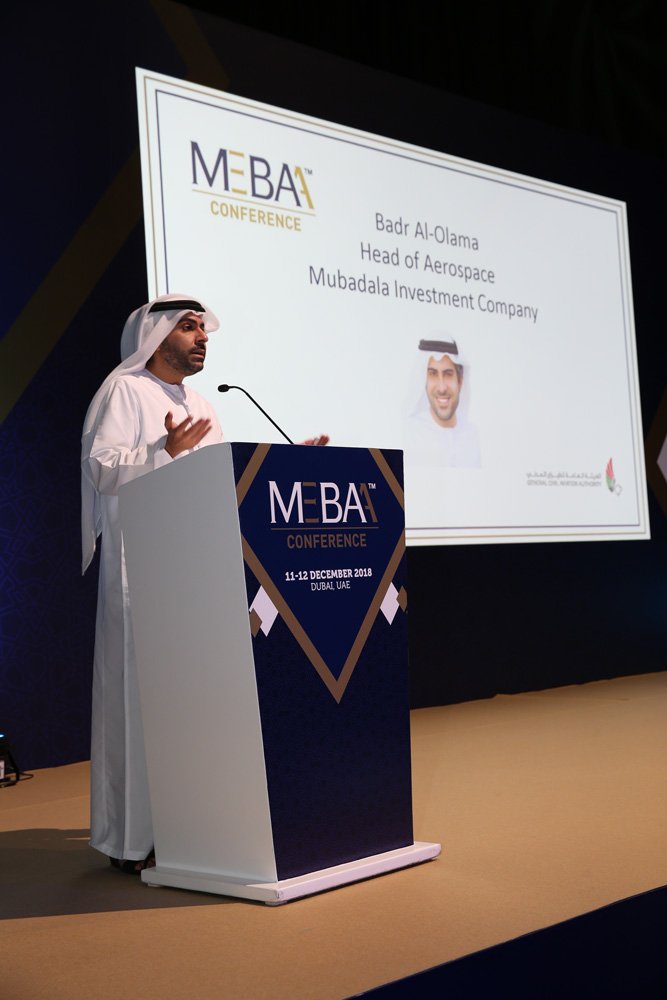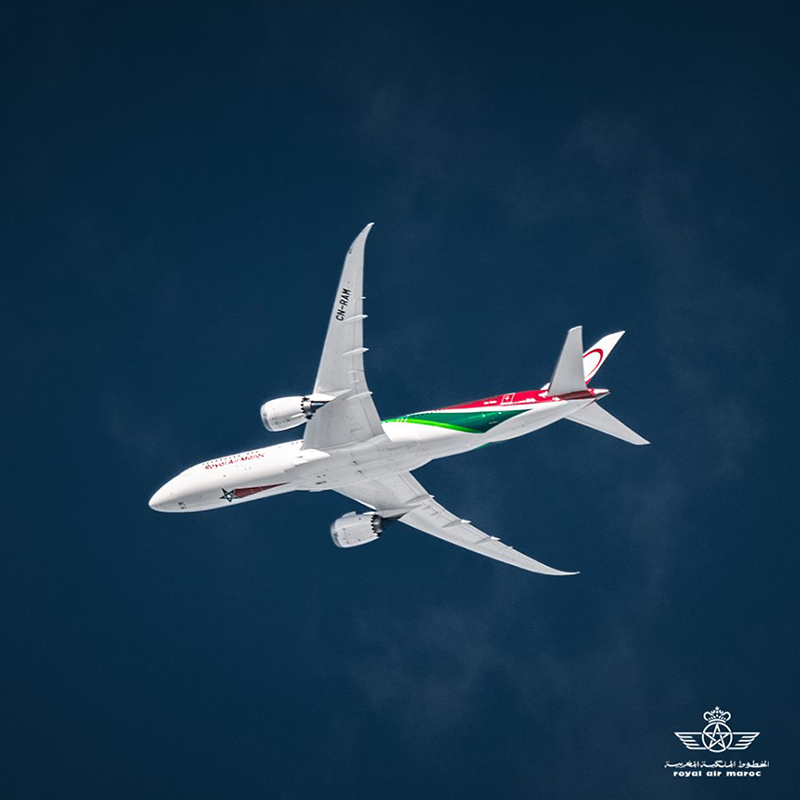In the future, business aviation will be as ubiquitous as driving a car – according to Badr Al-Olama, Head of Aerospace, Mubadala Investment Company, who delivered a dramatic vision of the sector’s future in a keynote speech at the second day of the MEBAA Conference Dubai.
Putting the global business aviation sector under the microscope at the latest event in the regular regional series held by the Middle East & North Africa Business Aviation Association (MEBAA), Al-Olama sees a future where he hopes everyone should be able to afford to own or use business jets. “Driving a car used to be a luxury only afforded to the extremely wealthy. But I see a future, driven by technology and reduced costs, where business aviation will become much more affordable and commonplace,” he said.
He pointed out that disruptive companies such as Uber and Tesla have taken inspiration from the aerospace sector. “Conventional airline travel has always been based on ride-sharing. Uber took this concept and digitised it. Tesla’s driverless vehicles follow the lead shown by the aerospace industry in terms of flight automation.”
Badr Al-Olama sees a number of disruptive technologies on the horizon. Mubadala has already provided 3D printed thermoplastic parts for Etihad, with Al-Olama pointing out that fast, cost-effective 3D printing sits perfectly with the business aviation sector, for example printing bespoke and obsolete parts, adding: “it makes such good sense, and represents an enormous opportunity.”
Mubadala is also working with IBM in the AI sector, where the aviation expert sees business aviation as fertile ground for AI-based technology – especially in terms of flight deck automation and cost-saving predictive maintenance.
He suggested that electric engines are more likely to be adopted by business aircraft before commercial airlines, and called for virtual testing of aircraft and products to speed up time to market. “In the highly dangerous and expensive nuclear industry, they test new plants using simulation, so why can’t we do this in the aerospace sector? We have to run real physical tests, which are time-consuming and costly. We can create ‘digital twins’ of aircraft and parts and run simulations, saving time and costs.”
Badr Al-Olama also wants to see a future where ground handling and MRO is geared towards the smaller needs of business aviation, rather than the large commercial operators. He hopes to see MRO facilities in future becoming more like ‘High Street’ automotive garages.
The audience, made up of global sector influencers and thought leaders, attend the MEBAA conference to discover the issues and challenges that are driving the regional business aviation industry.
Innovation is a key driver for the business aviation sector, but an in-depth panel session, featuring global players XJet, UAS International Trip Support and Comlux revealed a perceived lack of innovation in the industry.
Renowned aviation entrepreneur Josh Stewart, CEO and founder of XJet, said: “This industry needs entrepreneurs and it needs fresh investment in terms of money and ideas. I wish we were more innovative. I think we are way behind – and we must change. We face a classic ‘old boy’s network’, and there is not a lot of space for entrepreneurship.
“Kids out there simply don’t know that business aviation offers so many viable and exciting career opportunities. People tend to think in terms of commercial pilots as the only career in aviation, and rarely think beyond that. We need organisations like MEBAA, schools and universities to promote opportunities in the sector.”
Ryan Frankhouser, Regional Director – America, UAS International Trip Support, said: “We are facing a dilemma – people want powerful tools, but a large part of our market is afraid to accept and adapt to innovative ideas.” He pointed out his internet is way faster at home than in the air, and the reason connectivity speeds in air are slower is often down to slow regulation and bureaucracy.
Tobias Laps, Senior VP, Comlux, said: “Our industry is quite bi-polar, in that we have conservative clients, but we are offering some very innovative measures – for instance, we have been using 3D printing for years.”
Consolidation might bring cost savings to end-users, but is it a good thing for industry players? The three panellists delivered an emphatic no, with Stewart suggesting that the industry is “…losing its face. How does a new company or young entrepreneur compete against an FBO with 210 locations owned by a multi-billion dollar public company?”
Frankhouser told delegates that there’s a price to pay for convenience, and there’s comfort in knowing a product you use in one place will be identical in another, but that “…we are losing touch with what made the industry special, we are in danger of losing our identity. We need innovators, and we need disruptors. What we developed 20 years ago was considered disruptive and innovative, now it’s commonplace. We should let the innovators make their impact, make their money and sell to larger companies – to make way for more innovators.”
Laps highlighted that the nature of the industry is “to supply very specialised services, of a very high standard. To maintain quality, it’s important to take advantage of synergies ¬ - but keeping a personal relationship is vital.”
Josh Stewart perhaps summed up the panel’s take on innovation best: “We need entrepreneurs, disruptors, innovators. We need to remove barriers to entry. This industry is wide open for growth, but we need to create awareness of the sector opportunities and attract a certain kind of entrepreneur.”
Ali Alnaqbi, Founding & Executive Chairman of the Middle East & North Africa Business Aviation Association (MEBAA) said: “Innovation is what drives us, and what makes this industry so fascinating. Our conference has speakers from some of the industry’s most disruptive, innovative and creative companies. What is fiercely apparent is the passion in the room, and that our industry will never be stale.
“As MEBAA, we organise the conference series to listen very carefully to what the industry is saying – and through interaction with the delegates and speakers, we are constantly striving to develop greater sector awareness and a positive vision for all our futures.”
The event, held in conjunction with the biennial MEBAA Show, invites regional and global thought leaders to share frank and forthright discussion on the issues shaping the regional business aviation sector. The packed two-day agenda covered the burning issues like blockchain, cyber security, aircraft design, climate change, innovation, law and regulation and connectivity.








